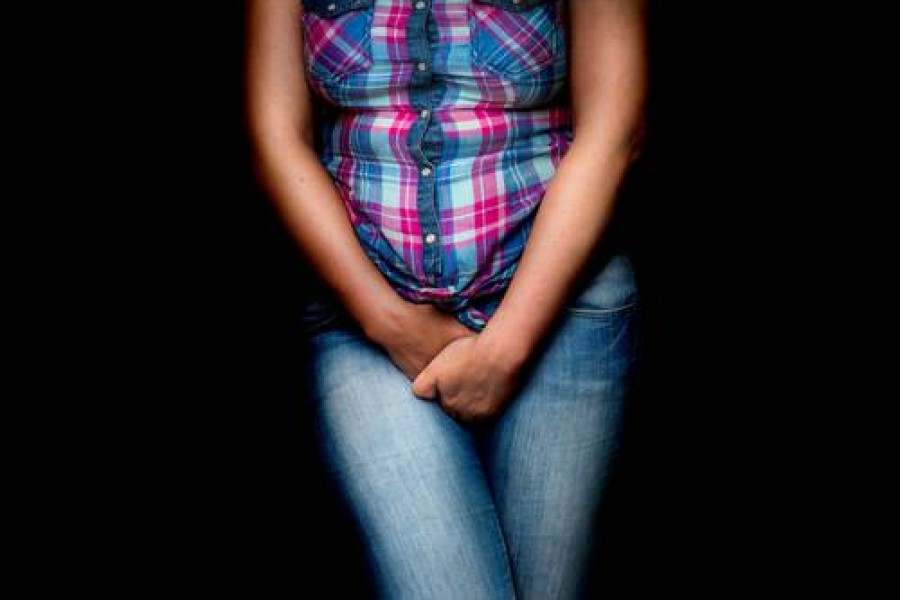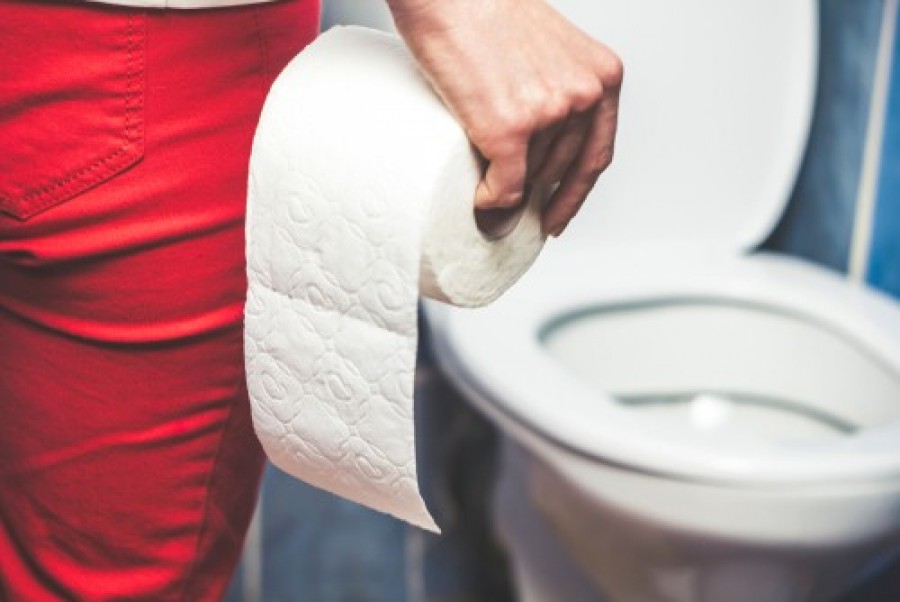Incontinence during Pregnancy and After Childbirth

During your pregnancy you will hear a lot of advice, from a wide range of sources. One thing that a lot of people tend to shy away from talking about openly however is the experience of incontinence during pregnancy, and after giving birth. Incontinence is the involuntary loss of urine (meaning you might pee a little even though you don’t want to!). Many women will experience some degree of incontinence at some stage during their pregnancy and shortly after giving birth – and this is completely normal! Reading up about incontinence, and knowing what to expect, how best to handle incontinence and what you can do help your body heal to prevent ongoing incontinence is really important.
Why will I experience incontinence during pregnancy?
The most common form of incontinence during pregnancy is stress incontinence. This type of incontinence is caused by increased pressure on the bladder, caused by your baby’s growth – so you might experience this more as your pregnancy progresses. Because of the increased pressure, your bladder sphincter (the valve that stops you peeing) struggles to function properly, resulting in involuntary incontinence. Incontinence can also be the result of an overactive bladder. Some women who have an overactive bladder need to urinate more often, as their bladders have uncontrollable spasms, which again can affect the ability of the bladder sphincter to function properly. You may be more likely to experience incontinence if:
- This is your first pregnancy
- You have a long labour
- You have weak pelvic muscles
- You experienced bowel or bladder incontinence prior to falling pregnant
How do I know if I have weak pelvic muscles?
There are some signs that could indicate you had weak pelvic floor muscles prior to falling pregnant, and if you have developed weaker pelvic floor muscles after giving birth. These signs can include:
- Accidently leaking urine when you laugh, cough or sneeze (this is very common during the later stages of pregnancy, and for new mums)
- Needing to go the toilet frequently
- Leaking urine before you make it to the toilet in time
- Finding it difficult to empty your bladder
- Accidently losing control of your bladder or accidently passing wind
- Pain in the pelvic area or pain during sex
Will it get worse after giving birth?
This really varies from woman to woman. Most women find that after giving birth, with the reduction of pressure on their bladder, they experience incontinence less and this continues to improve as their body heals. For some women this process can take a matter of weeks, for some women it takes months, and in some cases it can become a longer term condition. During your pregnancy your body sends out hormones to the tissues and muscles that make up your pelvic floor, and these hormones make it ‘stretchier’ than normal.
This is to support the growth of your baby in the uterus, and prepare your uterus for giving birth. During the birth, these pelvis floor muscles are stretched even more, and they can weaken. If you have weak pelvic floor muscles to begin with, it can take longer for the body to recover from this stretching, and you may find you experience incontinence for longer, even after giving birth.
What if I have a caesarean birth?
Stress incontinence usually passes a few weeks or months after giving birth, but it can be on going for some women. For this reason, women sometimes may consider an elective caesarean. Some women may have already been advised by their doctor and midwife to opt for a caesarean over a natural birth for various medical reasons. While having a caesarean birth may prevent stress incontinence continuing after the birth, there are no guarantees. Medical professionals have advised that a caesarean may only reduce the risk of severe stress incontinence by 5%, and the more caesarean births you have, the less impact this has on whether you experience incontinence after the birth.
What can I do to help my body heal and improve incontinence?
The best way to help improve incontinence, and help your body heal after giving birth is to strengthen the pelvic floor muscles. Even if you have a weak pelvic floor to begin with, some simple exercises can help your body during your pregnancy and during healing:
- Before you cough or sneeze, cross your legs tightly and squeeze them together
- Avoid any heavy lifting
- Avoid any bouncing exercises, as these relax the pelvic muscles
- Avoid becoming constipated by eating plenty of fibre and drinking plenty of water
- Avoid straining when you go to the toilet, this can cause a ‘pushing down’ on the muscles which can weaker them further
- Practice doing pelvic floor exercises, sometimes referred to as kegel exercises
How do I do pelvic floor exercises?
Pelvic floor muscles help to strengthen the pelvic floor muscles, which can help to improve incontinence. They can be done just about anywhere, anytime – even sitting at your work desk, or laying down in bed! To start: Find the right muscles: the muscles you want to strengthen are the muscles that control you urinating. To find them, try stopping your pee mid-flow when you’re on the toilet. If you succeed you’ve found the right muscles! Practice the technique: to start with contract (tighten) these muscles for 5 seconds and then relax for 5 seconds.
Keep doing this over time and work your way to contracting the muscles for 10 seconds at a time. Remember to breathe: keep your breathing steady and relaxed as you do these exercises as this will help blood flow to your muscles. Repeat the exercise: for the exercises to be really effective, you need to practice and repeat these exercises regularly – aim to do this exercise for 10 repetitions, up to three times a day. You can do these gentle but effective exercises any time during pregnancy, and almost immediately after giving birth.
If you have been doing the exercises and are not seeing any improvement, try speaking to your midwife or doctor who can advise on other exercise that may help. To learn more on why does the pelvic floor gets affected during pregnancy, how to prevent it from being affected and more on the pelvic floor exercises to do during pregnancy, read here.
You should also speak to your doctor or midwife if during your pregnancy or after giving birth you experience:
- No control over the flow of your urine
- Pain when you urinate
- Cloudy or very discoloured urine
- Unpleasant smelling urine
These symptoms could be a sign of urinary tract infection, and may require anti-biotics to help fight the infection. It is always important to know your body and what feels ‘normal’ for you. Speak to your doctor or midwife if you experience any changes so they can provide support and medical care when appropriate.


